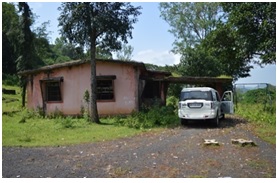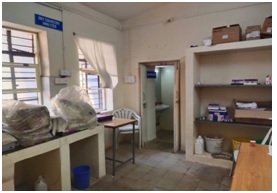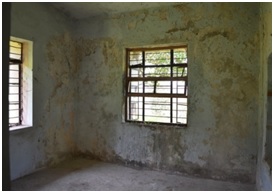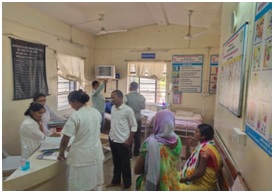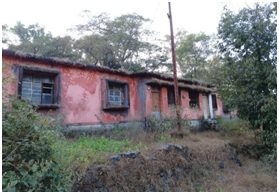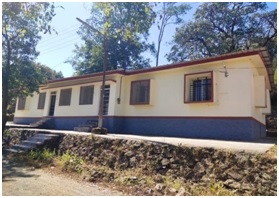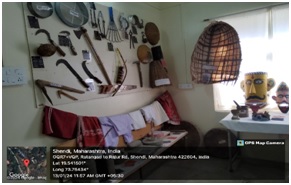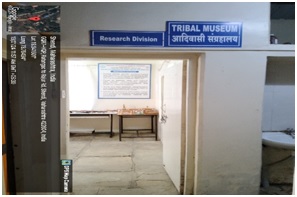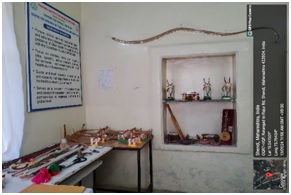Title of best practice
Centre for Research in Tribal Health and Services (CRTHS
Introduction:
Tribal communities in India experience healthcare disparities due to exclusion and discrimination, resulting in high poverty rates, limited education, and inadequate access to public healthcare. Despite efforts, poor healthcare access persists, with urgent research needed on genetics, behavior, and health for these communities
Background to Tribal Healthcare Delivery and Research:
As part of Institutional Social Responsibility, the PIMS-DU with the support of Sida& PMT, has adopted 100 remotest villages/hamlets in the lonely tribal block of Ahmednagar district, for “Developing a Muli-sectoral Approach Model for Sustainable Health and Development” in collaboration with two Swedish Universities,since 2006. Under this project PMT/PIMS has designed & implemented a “Comprehensive Tribal Healthcare Model” by establishing two 24/7 Tribal Health Centers (THCs):Bhandardhara (26.12.2005) and Rajur (15.05.2008); and twoMobile Clinics,4 Wheeler Ambulance, 6 Gram Arogya Banks and 4Motorbike Ambulances-cum-Health Clinics and 100 Arogya Mitra’s to provide quality healthcare and health education to 1.5 lakhs of tribal people - women, children, adolescents, and elderly and medical training to students of Constituent Units of PIMS-DU
Centre for Research in Tribal Health and Services:

To add the much-needed component of research into the field of Tribal Health &
Development, the University has established a “Tribal Campus with a Centre for Research
in Tribal Health and Services” in 2018withfour functional divisions 1) Health Service
Division; 2) Research Division; 3) Skill Development and Social Behavioral Change
Communication Division (SBCC); 4) Monitoring and Evaluation Division (M & E) where
faculty and students from all PIMS-DU units actively participate, with a scope of State and
National Studies.
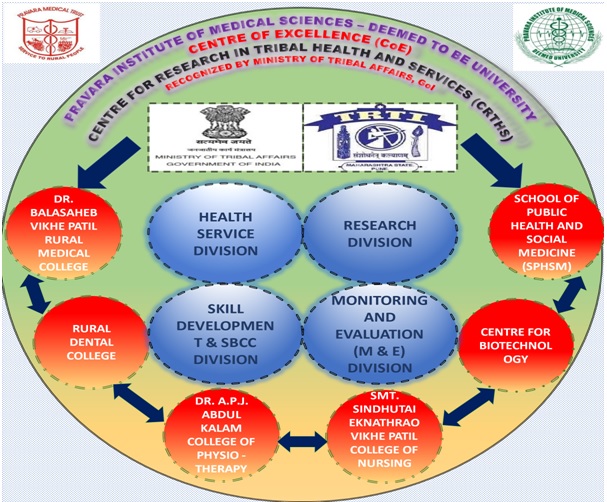
Healthcare services and research objectives are listed below:
1)To partner with indigenous communities for equitable health, development, and research.
2) To identify tribal health needs, especially Particularly Vulnerable Tribal Groups
(PVTGs).
3) To promote research on health issues and policies for tribal populations in India.
4) To develop and enact innovative healthcare models for health
5) To Empower tribal communities for health and development participation.
6) To influence tribal health policies globally based on new solutions.
Activities/Services and Outcomes/Outputs/Impact:
A) Partnership with Indigenous communities regionally and nationally for health equity, development and research: (Research Division
1. National Conference on Tribal Health Research– 19-21September, 2019 at PIMS – DU and Bhandardara Tribal Campus.
The conference was sponsored by the MoTA, GoI, TRTI, GoM, and WHO, India. 333 delegates from 20 Indian states attended. The event featured keynotes, plenary sessions, scientific paper presentations from 11 states, alongside a Tribal Exhibition and Cultural Program and came out with Loni – Bhandardara Declaration".
2. Research on Documentation of Socio-Economic and Demographic Profiling with Geo-Tagging, Documentation of Traditional Healing and Ethno-medicinal Practices, and Training of Tribal Traditional Healers of Maharashtra” Ministry of Tribal Affairs (MoTA) GoI, New Delhi
The Ministry of Tribal Affairs, GOI recognized Pravara Institute of Medical Sciencesas a "Centre of Excellence"and sanctioned the Research Project, wherein 1176 Traditional Tribal Healers in 17 Maharashtra districts and 24 tribes were interviewed until November 2023; 273 healers from 8 districts attended basic training in 10 programs.
3. Research Project on Documentation of Healing Practices of Tribal Communities sponsored by Tribal Research and Training Institute (TRTI), Pune, GoMa) Focus on Traditional Healers / Bhagats of (1) Mahadev Koli, (2) Thakar / Takur,
(3) Katkari, (4) Kokana and (5) Warli Tribal Communities living in Pune, Nashik,
Palghar and Raigarh Districts of Maharashtra”.10 Video documentaries have
been prepared under this project with 289 traditional tribal healersin – depth
interviews. (2021 – 2023)
b) Focus on Traditional Healers/Bhagats of (1) Pardhi and (2) Dhanka Tribal
Communities living in Dhule, Nandurbar, Buldhana and Amravati districts of
Maharashtra”. (Ongoing) (2023 – 2024)


B.) To identify unmet health needs of tribal population particularly of PVTGs: (Research Division
The University was invited by MOTA, GOI to participate in the Special Conference organized on the PM PVTG Mission and presented a paper on the Health Issues of three PVTGs - Katkari, Maria Gond, and Kolam.
C) Promote & undertake research on problems and policies of health: (Research Division)
PIMS – DU units have conducted 31 research studies in tribal areas, so far. Nine studies were published in peer-reviewed journals, and eight were presented at national conferences across India, with one winning a best prize award.
D.) Achieving health equity by designing and implementing community based innovative health care delivery models (Health Service Division)
PIMS – DU units have conducted 31 research studies in tribal areas, so far. Nine studies were published in peer-reviewed journals, and eight were presented at national conferences across India, with one winning a best prize award.

Two (2) Tribal Health Centre established in Akola Tribal Block are fully staffed and functional
1. Tribal Health Centre: Bhandardara functioning since 2005 completely renovated
2. Tribal Health Centre: Rajur functioning since 2008.
These two centres have served 1,73,118clients in the last five years.
- One (1) Mobile Clinic for General and MCH services from 2018 through 2023 serving 26,206 clients.
- Two (2) Motorbike Health Clinic cum Ambulances: for curative and preventative treatments: Served 52,139in five years. As ambulance it transported 594 patients to the higher centres for further treatment.
- School children receive health check-ups at Ashram School camps.
- Eight Gram Arogya Bank with trained Arogya Mitra offer first-aid, prevention, and referrals
- ~ 100 adopted villages in Akola Tribal Block receive health care from Female Health Volunteers/ASAH Workers
E.) Capacity Building and Social Behavioural Change Communication: (Skill Development and SBCC Division)
The University was invited by MOTA, GOI to participate in the Special Conference organized on the PM PVTG Mission and presented a paper on the Health Issues of three PVTGs - Katkari, Maria Gond, and Kolam.
1. Ward Boy:Eighteen unemployed tribal youth were trained in Ward Boy Course with 400 hours in 2019-20, sponsored by Tribal Development Department, GoM.
2.In Maharashtra, 273 tribal healers were trained under MoTA with a scientific curriculum.
F.) Influence national and global health policies of tribal population based on the new knowledge
- The MOTA, GoI has recognised the Comprehensive Tribal Healthcare Model developed by PIMS-DU, and given opportunity to present the Model in various MOTA sponsored conferences and meetings.
- Advocated for a National Tribal Health Policy through our TRIBECON Loni Declaration
Future Plans:
In the process of further strengthening our Tribal Campus activities by establishing a "Tribal Health, Education, Research & Development Institutes.
